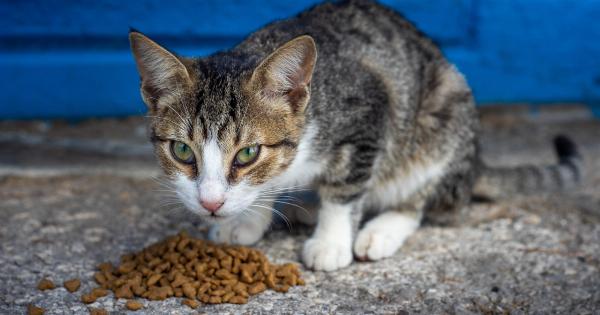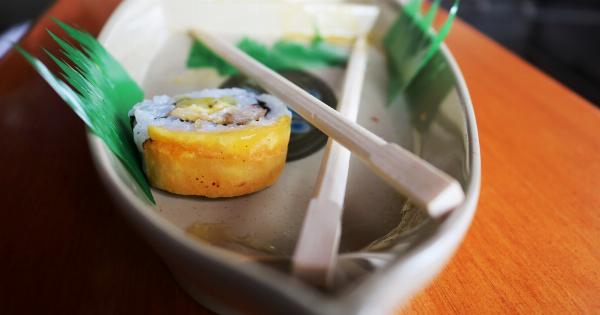Food poisoning can cause serious illnesses, such as vomiting, diarrhea, and dehydration.
Most people recover from food poisoning without any treatment, but it can be life-threatening for some people, such as young children, pregnant women, and those with weakened immune systems. It’s important to identify the source of food poisoning to prevent it from happening again. Here are ten common culprits to avoid:.
1. Raw or Undercooked Meat and Poultry
Raw or undercooked meat and poultry, such as chicken and beef, can contain bacteria like salmonella and E. coli. These bacteria can cause food poisoning and lead to serious complications like kidney failure.
Cooking meat and poultry to the appropriate temperature is crucial to kill any bacteria that might be present. As a general rule, beef should be cooked to an internal temperature of 145°F, poultry should reach 165°F, and ground meats like hamburgers should be cooked to 160°F.
2. Raw or Undercooked Eggs
Raw or undercooked eggs are another culprit of food poisoning. Eggs can contain salmonella bacteria, which can cause severe stomach cramps, vomiting, and diarrhea.
To avoid food poisoning, avoid foods that contain raw or undercooked eggs, such as homemade mayonnaise, eggnog, and raw cookie dough. Cook eggs until the yolk and white are firm and not runny.
3. Raw Shellfish
Raw shellfish like oysters, clams, and mussels can carry the Vibrio bacteria, which can cause severe food poisoning. The bacteria are more common in the warmer months, so it’s best to avoid raw shellfish during this time.
Cook shellfish properly and avoid buying shellfish that are already open or have a bad odor.
4. Unpasteurized Milk and Cheese
Unpasteurized milk and cheese have not gone through the pasteurization process, which kills any harmful bacteria that may be present. Raw milk and cheese can carry bacteria such as E. coli and listeria, which can cause food poisoning.
To avoid food poisoning, choose pasteurized milk and cheese products.
5. Cross-Contamination
Cross-contamination is the transfer of harmful bacteria from one food item to another. This can happen when you use the same cutting board or knife for raw meat and then use it for vegetables without washing it in between.
To avoid food poisoning, use separate cutting boards, knives, and utensils for raw and cooked foods. Wash your hands and surfaces thoroughly with soap and water after handling raw meat and poultry.
6. Improper Storage
Improper storage of food can also lead to food poisoning. Perishable foods like meat, dairy, and eggs need to be refrigerated at 40°F or below to prevent the growth of bacteria.
Don’t leave cooked food at room temperature for more than two hours and discard any food that has been left out for longer than that.
7. Fruit and Vegetables
Fruit and vegetables can also carry bacteria that can cause food poisoning. Bacteria like E. coli can be found on the surface of produce, so it is important to thoroughly wash fruits and vegetables before eating them.
Use a produce brush to scrub any fruits or vegetables with a hard surface, such as melons or cucumbers.
8. Contaminated Water
Contaminated water can also be a source of food poisoning. Bacteria like giardia and cryptosporidium can cause severe diarrhea and vomiting if ingested.
To avoid food poisoning from contaminated water, make sure to drink only from safe sources, such as bottled water or water that has been properly treated and tested.
9. Canned Foods
Canned foods can also be a source of food poisoning if they are not handled properly. Dented, bulging, or swollen cans can harbor harmful bacteria, so it’s important to inspect cans before consuming the food.
Also, make sure to store canned foods in a cool and dry place to prevent the growth of bacteria.
10. Improperly Prepared Foods
Improperly prepared foods, such as casseroles or stews, can also cause food poisoning. The internal temperature of these foods should be checked with a meat thermometer to ensure that they have been cooked to the appropriate temperature.
Foods should be reheated to 165°F before eating to kill any harmful bacteria that may be present.
Conclusion
Food poisoning is a serious health concern that can cause severe illness and even death in some cases. By following these ten tips, you can reduce the risk of food poisoning and avoid becoming ill.
Properly storing, cooking, and handling food is essential to keep your family and friends safe.



























